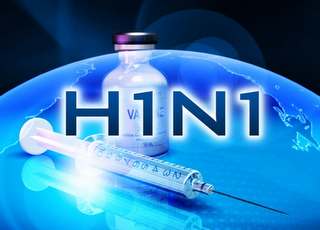Influenza A (including H1N1 infection) May Trigger Narcolepsy
What causes narcolepsy? I wasn’t born with narcolepsy but developed it in my late teens to early 20’s.
Evidence continues to suggest that influenza A (including H1N1) and other winter airway infections play a significant role in narcolepsy onset. However, the role of H1N1 vaccination is a different story, suggests a recent study led by Dr. Emmanuel Mignot.
“Together with recent findings, these results strongly suggest that winter airway infections such as influenza A (including H1N1), and/or Streptococcus pyogenes are triggers for narcolepsy,” reports the study published today August 22 in Annals of Neurology, a journal of the American Neurological Association and Child Neurology Society.
Why does this happen to some people but not others? Scientists believe that an individual may have a “genetic predisposition to the disease, and some environmental factor kicks his or her immune system into action leading to narcolepsy.” In Caucasians, Streptococcus pyogenes infections, such as strep throat, have been shown to precede narcolepsy onset, similarly indicating that upper airway infections play a role.
“Last year, several European countries reported new cases of narcolepsy in children who had been vaccinated for the H1N1 strain of influenza; children who received the Pandemrix H1N1 vaccine in Finland, for example, faced a ninefold increased risk of narcolepsy,” describes Stanford University’s School of Medicine’s news articletoday. “The World Health Organization led an investigation and determined that something about this particular vaccine acted in a ‘joint effort’ with ‘some other, still unknown factor’ to increase risk in those already genetically predisposed. (Pandemrix contains two adjuvants to invoke a stronger immune response; these additives are not included in the H1N1 vaccines used in the United States and China.)”
See also: Donald McNeil Jr., A Surge in Sleepiness in China Appears to Have Been Caused by Flu. New York Times, August 22, 2011.
Martin Beckford, Swine Flu infections trigger narcolepsy, not vaccine, says study. The Telegraph, August 22, 2011.

Reading this post reminded me that my senior year of highschool was when I first started yawning at weird times like just before an orchestra performance. I was so excited about performing and couldn't figure out why I was yawning. Is it some weird quirk of mine that I yawn when I'm excited about something? I kept this in the back of my head and found myself yawning on a date, and I liked the guy! He asked about it and I told him that I have this weird quirk…looking back, a lot of guys asked me that and I always just told them it was my weird quirk! Every time I'd ask myself what I was excited about/looking forward to and every time I'd have an answer! I guess there could have been worse things to think about when I yawned, so I guess I preferred my positive way of keeping myself in the dark for as long as I could. Ah, the joys of being young and not taking a yawn seriously…is dangerous bliss.
Angie
I find this very interesting. I'm a 3rd year pharmacy student and narcoleptic. I was skeptical of a direct link between the influenza vaccine and narcolepsy. I feel like many environmental/bacterial/viral triggers lead to turning on of narcolepsy genes. I feel narcoleptics want a solid 'why' so they take vaccines and run with it. Thanks for the reputable study info.
[…] on it – fast and furious! With so many cases being diagnosed worldwide in the wake of the H1N1 flu vaccine/epidemic, I believe time is of the […]
[…] At the meeting, new data from Finland, France and China further suggested a link between narcolepsy and H1N1 vaccination or infection. (In Finland and France – with Pandemrix vaccination. In China – with H1N1 infection without vaccination.) My first blog post on this topic is here. […]
My symptoms actually started the year I first received the H1N1 vaccination. I got the vaccine at a clinic at my school, and that same year I started experiencing microsleeps during class.